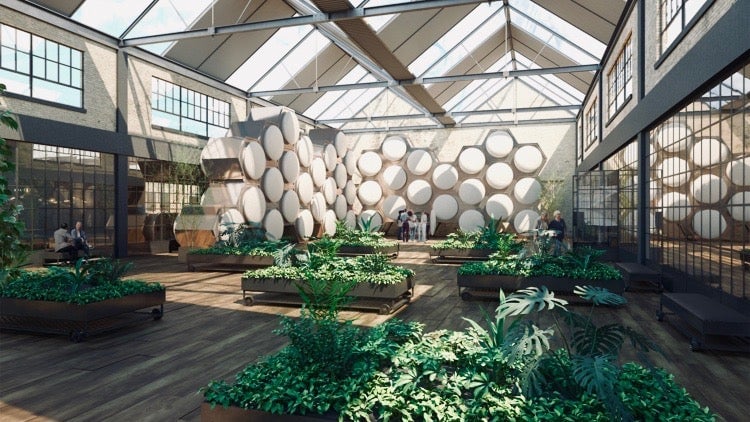Washington state lawmakers just approved human corpse composting
“Dust to dust” just became a much more literal proposition in Washington state, where the legislature approved human composting on May 21.


“Dust to dust” just became a much more literal proposition in Washington state, where the legislature approved human composting on May 21.
Bill 5001, “concerning human remains,” is now on the governor’s desk, awaiting a signature after passage in the house and senate. This makes Washington the first US state legislature to approve human composting as an alternative “burial” option in a process called “recomposition” (which sounds more heartening than “decomposition” and emphasizes the environmental friendliness of this method).
Recomposition uses an eighth of the energy required for cremation and saves more than one metric ton of carbon dioxide per person comparatively, Troy Hottle, a postdoctoral fellow at the Environmental Protection Agency, told the Seattle Times in April. And there is already a company that exists to offer this service in Washington, called Recompose.
“Recompose offers an alternative choice to cremation and conventional burial methods. Our service—recomposition—gently converts human remains into soil, so that we can nourish new life after we die,” the company website explains. Recomposition uses natural principles to transform human remains, and it is inspired by a process that some farmers already use for animals.
Company founder Katrina Spade lobbied for the bill’s passage in Washington. In a TED Talk, she explains that mortality composting involves taking an animal high in nitrogen and, rather than burying it, blanketing it with co-composting materials that are high in carbon. With oxygen and moisture as the basic ingredients, an animal is covered with a few feet of wood chips, which are high in carbon, and left outside for nature to do its thing. Breezes provide oxygen and rain offers the needed moisture and in about nine months the flesh and bones have completed decomposing. What remains is a nutrient-rich compost.
Recompose promises to accelerate this process and offer loved ones a green alternative to traditional burial. It envisions transforming human remains to soil inside a “reusable, hexagonal recomposition vessel” (see image above). When the process is done, loved ones can take home some of the soil while the rest will be used to nourish an on-site garden to “remind us that all of life is interconnected,” the company website states.
Spade’s interest in “death care” stems from her upbringing in a “medical family…where it was fairly normal to talk about death and dying at the dinner table,” she says. However, she didn’t follow in her family’s footsteps exactly. Instead, she studied design at architectural school and became curious about what would happen to her body after death. Concerned about crowded cemeteries and the environmental effects of disposing of remains through cremation, Spade came up with the notion of recomposition for human remains and began designing a space that would serve this process.
Spade is not alone in her concern about how society handles corpses. As urban spaces are growing more crowded and worries about the environmental harm of embalming become better known, alternatives to traditional burial methods are proliferating, including “bio-cremation.” This was traditionally used for medical cadavers and basically involves dissolving bodies in a highly accelerated decomposition process that takes a few hours, leaving only bones, which are dried in a convection oven and pressed into powder, then handed over to the family just like ashes from traditional cremation.
Like Recompose, many of the companies working on these new methods, which focus on the morbid topic of death, emphasize natural processes and new life instead. They offer a kind of immortality. For example, Bios, a Spanish company, creates futuristic urns that decompose in nature and help turn cremated ashes into trees, a living reminder of lost loved ones and a symbol of growth and longevity.
Similarly, the actor Luke Perry, who recently died of stroke, was buried in a “mushroom suit,” a completely biodegradable burial garment that replaces a traditional coffin. The “infinity burial suit” is designed by Coeio to cleanse the body and soil of toxins and prompt clean and quick decomposition. Perry’s daughter, Sophie, explained in a post on Instagram that discovering the suit thrilled her father. “They are truly a beautiful thing for this beautiful planet,” she wrote.